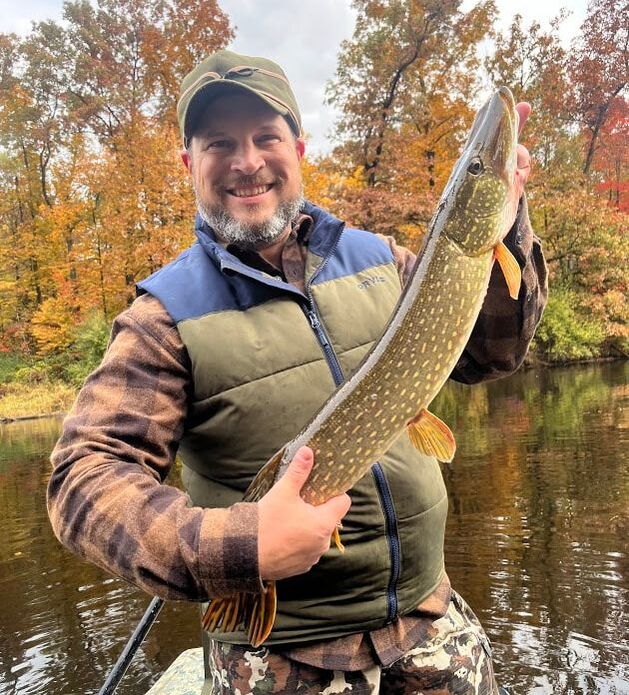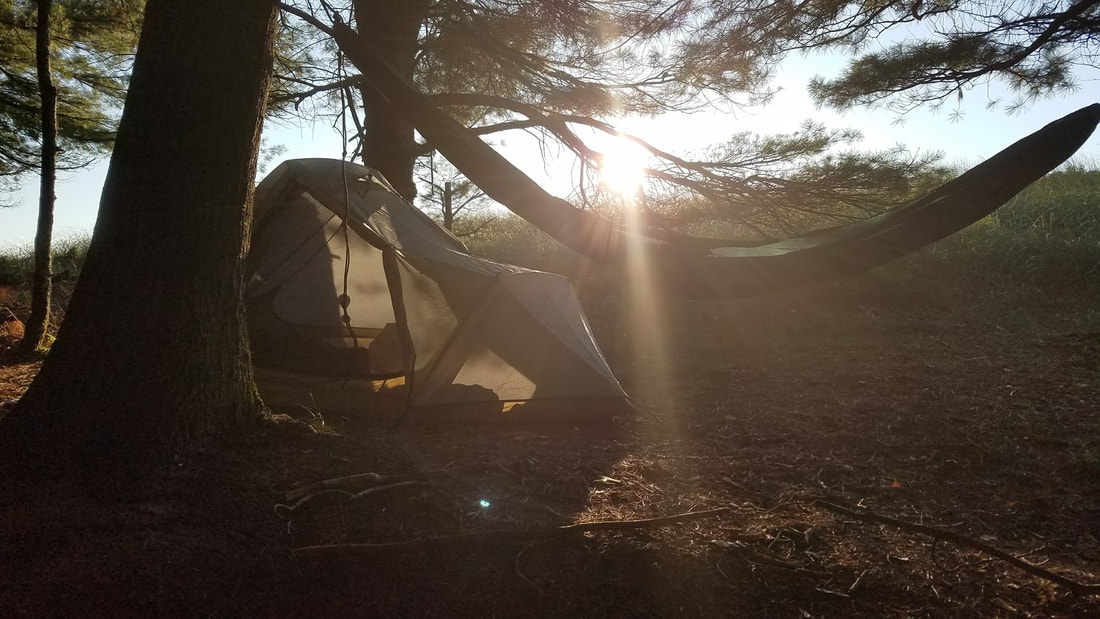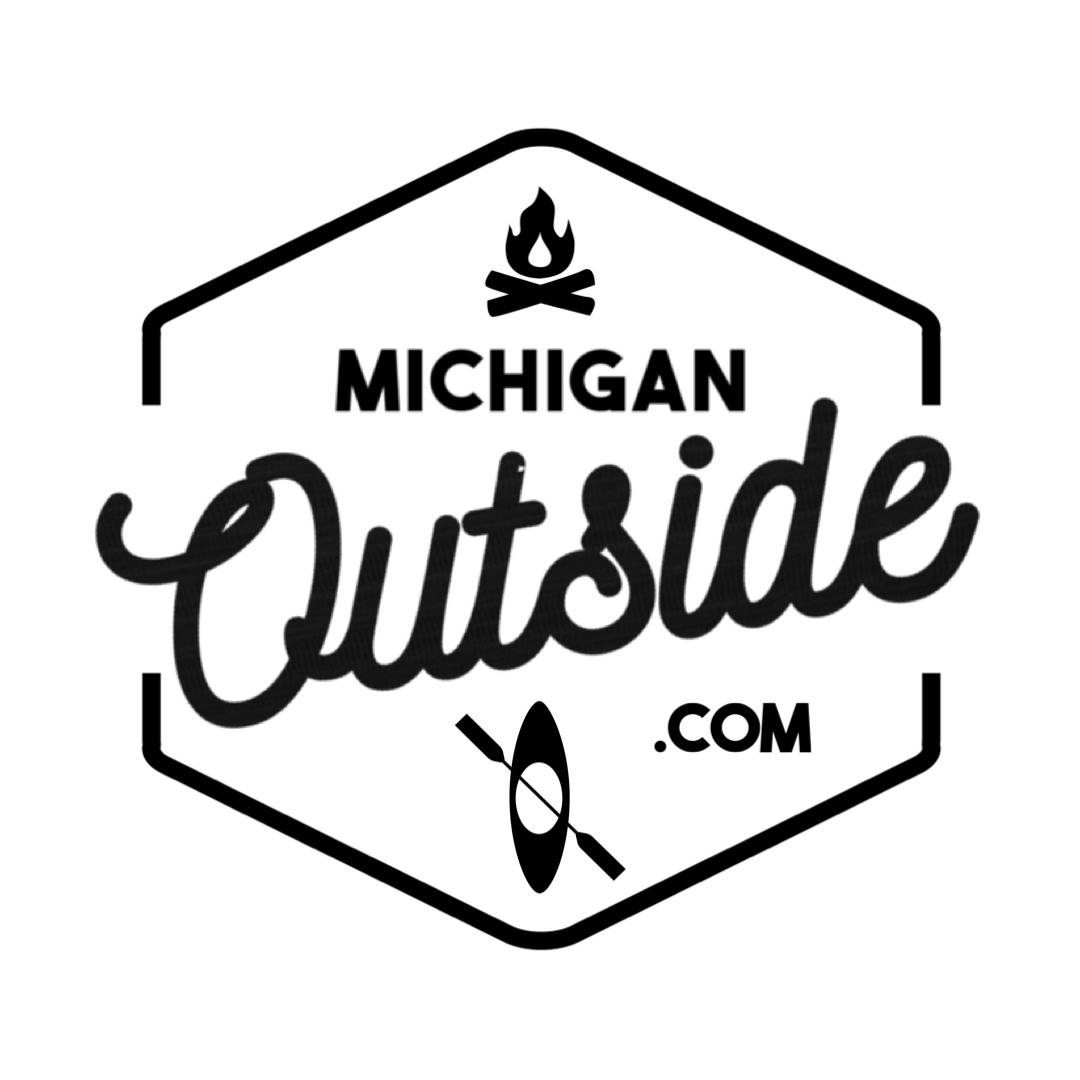|
By Drew YoungeDyke (Originally published in the April 2021 issue of Woods-N-Water News)
The swish of waves on the beach, the crackle of a campfire, and the zip of a tent door; I started imagining the sounds of a Fresh Coast summer as soon as the snow began melting in March. Camping on the Great Lakes is one of my favorite things about living in Michigan, opening access to a diverse range of outdoor recreation opportunities like trail running, hiking, surfing, kayaking, fishing, or just enjoying the sun on a beach towel. The twin abilities to plan well while remaining flexible enough to change your plans will help make the most of your Great Lakes camping trip. Planning ahead is a must for camping on the Great Lakes in Michigan, both due to the pandemic and the resulting surge of interest in outdoor recreation. Last summer, even weekdays saw campgrounds as full as most weekends. This year, competition for state park campground reservations online is already in full swing. Planning ahead goes beyond booking a campground reservation online, though. Thinking through your gear and what you want out of your Great Lakes camping vacation can help you avoid crowds and get the most out of your trip. At the same time, being adaptable to changing conditions can help you salvage your trip when things don’t go according to plan. Last summer, for instance, I road-tripped along northern Michigan’s Lake Michigan coast from my home in Ann Arbor up to Empire, Frankfort, Traverse City, Eastport, Central Lake, and Northport, camping out at Sleeping Bear Dunes National Lakeshore and Antrim County’s Barnes Park. I was shooting scenes for a film about the threat of invasive carp - “Against the Current” - with Jordan Browne of Michigan Out-of-Doors TV for the National Wildlife Federation, where I work. Due to the COVID-19 pandemic, our staff travel was restricted without an approved travel plan meeting strict social distancing requirements. My detailed plan included camping out instead of staying in hotels (which I’d rather do anyway), eating only takeout, outside, or what I brought in a cooler, wearing a mask at all times I had to be indoors at all or couldn’t keep six feet of distance from others, and keeping and using hand sanitizer from Mammoth Distilling in the car at all times. To have the best chance of booking campground reservations, I also planned to film all the scenes during the weekday so that I was avoiding weekend crowds. Even so, there were few campsites available. I accidentally booked my first campsite at the D.H. Day Campground at Sleeping Bear National Lakeshore for the wrong day, which I didn’t realize until I’d made the four-hour drive from Ann Arbor to find the campsite occupied. Time for Plan B. I used my iPhone and the wifi signal from the ranger’s office parking area to check availability and book a walk-in site at the Platte River Campground – about twelve miles away - where my wife and I had camped a few years ago. I drove to the new campground, stuffed my camping gear in a backpack and hiked the short trail to my campsite in the dark by the light of my headlamp. The gentle sound of waves from the beach down the hill through woods in the night calmed all my frayed nerves from finding a place to pitch my tent. The next morning, I drove to the beach in Empire to meet Ella Skrocki from Sleeping Bear Surf & Kayak, whom I was interviewing about the potential impact of invasive carp to outdoor recreation businesses like hers if they were to invade the Great Lakes. The predawn waves and were beautiful but not big enough to surf. With a rainstorm on the horizon, though, Ella suggested we try the beach at Frankfort, so I drove there through the rainstorm and met her, her sister Annabel, and Jordan Browne. The rain passed and the waves were perfect. Jordan captured great footage of Ella and Annabel riding waves and me wiping out, along with my interview of Ella for the film. Both of these changes of plan highlighted the importance of being adaptable for a Great Lakes camping excursion. While we can plan the vacation time we take off, we can’t plan the weather for the days we took. Planning to catch some sun on the beach? What if it’s cloudy and windy? Might be a perfect day to take a surfing lesson from Sleeping Bear Surf & Kayak or a distillery tour at Mammoth Distilling. Planning to surf? What if it’s sunny, calm, and waveless? Might be a perfect day to rent a stand-up paddleboard, go for a trail run, or just take a nap in a hammock. And while you might not make my mistake of booking a campsite on the wrong day, what if the campsite double-booked it, or it got flooded, or the generator and giant RV on the campsite next to yours is too loud? Knowing about some of the other campgrounds in the area can save you from a night sleeping in your car, calling motels, or feeling like you’re camping in a shopping center parking lot instead of a Great Lakes campground. The gear you pack is just as important as your pre-trip planning. I had fairly limited space last summer in my office’s hybrid Toyota Camry, but having packed a backpack, headlamp, and raingear – even though I’d planned to car camp – I was able to carry my gear into the alternative hike-in campsite at Sleeping Bear. Don’t just pack for the conditions you expect; pack for the full range of possible conditions. After last summer’s adventure, and plenty before it, I’m planning some Fresh Coast camping for this summer for the family. As my gear list takes shape, it will include the surfboard I bought from Sleeping Bear after the interview, but also trail running shoes and a float tube and fishing rods for calm conditions (and a recently-purchased used Toyota Tacoma pickup to haul it all). I’ll be ready for calm days and windy ones, sunny afternoons or rainy mornings, so that Michigan’s famously fickle weather doesn’t ruin my plans. Rather, I’ll be prepared to let the adventure take shape. Living in Michigan, we’re never more than a couple hours from a Great Lake and a campground nearby. After the year we’ve had and a typically inconsistent winter, there’s nothing I’m looking forward to more than Lake Michigan beaches, waves, and campfires. With a little planning and the flexibility to change those plans, a Fresh Coast camping adventure awaits. |
AUTHOR
Drew YoungeDyke is an award-winning freelance outdoor writer and a Director of Conservation Partnerships for the National Wildlife Federation, a board member of the Outdoor Writers Association of America, and a member of the Association of Great Lakes Outdoor Writers and the Michigan Outdoor Writers Association.
All posts at Michigan Outside are independent and do not necessarily reflect the views of NWF, Surfrider, OWAA, AGLOW, MOWA, the or any other entity. ARCHIVES
June 2022
SUBJECTS
All
|



 RSS Feed
RSS Feed